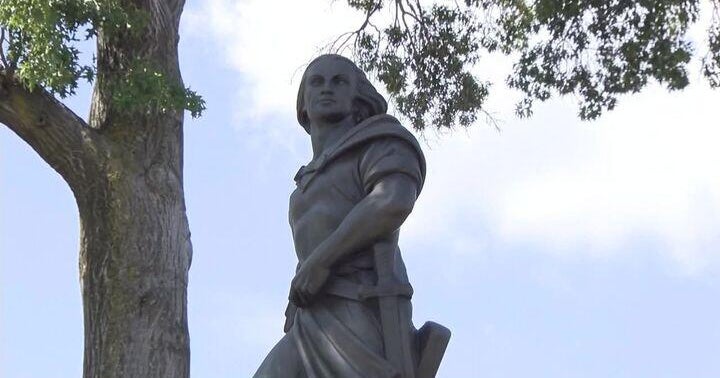Monday is a federal holiday and a holiday with a history of name changes and debate. It’s a holiday reserved for our country’s history, whether you call it Columbus Day or Indigenous Peoples’ Day.
President Donald Trump signed a Columbus Day proclamation last week to reclaim the explorer’s legacy. In 2021, President Joe Biden became the first president to issue an official proclamation commemorating the day as Indigenous Peoples’ Day.
Southern Methodist University associate professor of political science Matthew Wilson said the holiday has become a hot-button topic for much of the country.
“This is one more part of the culture wars that we’ve been fighting in our society for some years now,” Wilson said.
Mr. Trump’s proclamation included a statement that Christopher Columbus discovered the New World in 1492. We asked Wilson to weigh in on how factual that is.
“Columbus certainly opened up the Americas to European exploration colonies, Asian conquest, etc., but he never actually landed on the territory of what is now the United States,” Wilson said. “There were Native peoples in what is now the United States prior to Columbus’ arrival.”
Wilson said Trump’s proclamation also honors Italian-Americans.
“Christopher Columbus was Italian. He was sailing under the flag of Spain, but he was himself from the Italian city of Genoa,” Wilson said.
Columbus has become a controversial figure over the years despite the federal holiday in his honor. This is particularly true among Native Americans, including the non-profit Intertribal Community Council of Texas.
“It’s not a surprise and just some of the things that have been going on in this administration. That was my initial response or reaction, but it’s definitely not a deterrent of what we’re going to do today to celebrate Indigenous Peoples Day,” Council chairwoman Kristy Moses-Parkinson said.
Moses-Parkinson said it’s important to her organization and Native Americans in North Texas to still celebrate Indigenous Peoples’ Day.
“It’s important because we are the original stewards of these lands, so to continue to celebrate our resiliency and our culture is important. It’s something that we’re not going to stop,” Moses-Parkinson said.
States and municipalities can still celebrate Indigenous Peoples’ Day even with the president’s proclamation. That includes 17 states and the District of Columbia, according to the Pew Research Center. The City of Dallas posted a tribute for Indigenous Peoples’ Day on social media.

